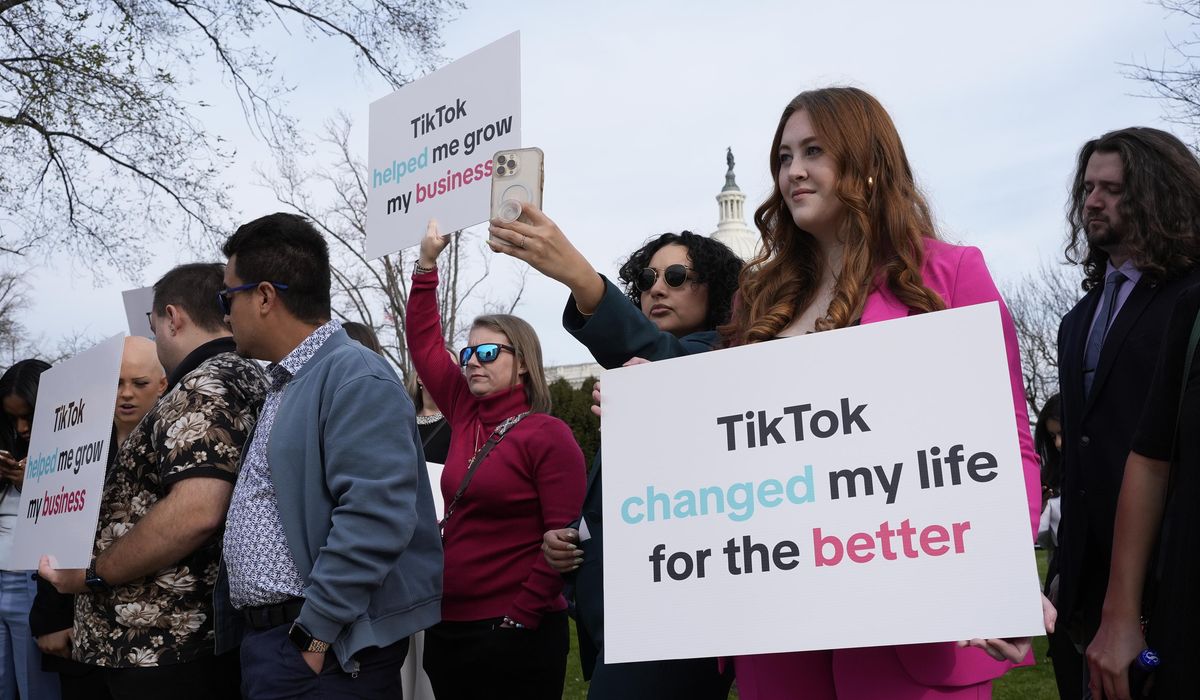


A federal appeals court in Washington on Friday upheld a law banning TikTok in the U.S. unless it’s sold by Jan. 19.
In September, a three-judge panel heard arguments over lawmakers’ move to ban the Chinese-owned video-sharing platform.
TikTok argued that shutting it out in the U.S. would violate the First Amendment.
The ban, approved by Congress and signed by President Biden in April, will go into effect if ByteDance, the owner of TikTok, hasn’t divested itself of the app, which has 170 million American users.
“The parts of the [Protecting Americans from Foreign Adversary Controlled Applications Act] that are properly before this court do not contravene the First Amendment to the Constitution of the United States, nor do they violate the Fifth Amendment guarantee of equal protection of the laws,” the opinion, authored by Judge Douglas Ginsburg, a Reagan appointee, read.
The opinion reasoned that the ban isn’t related to certain messages or speech, but is neutral. It relates to concerns over a foreign adversary.
“The provisions of the act before us are facially content neutral because they do not target speech based upon its communicative content. The TikTok-specific provisions instead straightforwardly require only that TikTok divest its platform as a precondition to operating in the United States. On its face, the act concerns control by a foreign adversary and not ‘the topic discussed or the idea or message expressed,’” the opinion read.
The case could be appealed to the Supreme Court.
The law won bipartisan support in Congress from lawmakers concerned that TikTok poses a national security threat by collecting users’ data.
TikTok and ByteDance sued the federal government in May and asked the federal appeals court, which expedited the case, for an injunction to block the ban.
With Donald Trump becoming president next month, it’s unclear if the Justice Department will continue to back the law.
Mr. Trump’s position on TikTok has changed over time. He initially recognized it as a national security threat but has softened on the platform and has an account. He also posted about it on Truth Social in September, saying he would “save TikTok in America.”
The appeals court, meanwhile, reasoned the law was narrowly tailored to pass constitutional scrutiny, declining to block the law’s enforcement.
“The problem for TikTok is that the government exercised its considered judgment and concluded that mitigation efforts short of divestiture were insufficient, as a TikTok declarant puts it, to mitigate ‘risks to acceptable levels,’” the opinion read.
“The First Amendment exists to protect free speech in the United States. Here the government acted solely to protect that freedom from a foreign adversary nation and to limit that adversary’s ability to gather data on people in the United States,” the court added, rejecting TikTok’s challenge for review.
The Justice Department said TikTok received direction about content on its platform from the Chinese government, The Associated Press reported.
• Alex Swoyer can be reached at aswoyer@washingtontimes.com.
